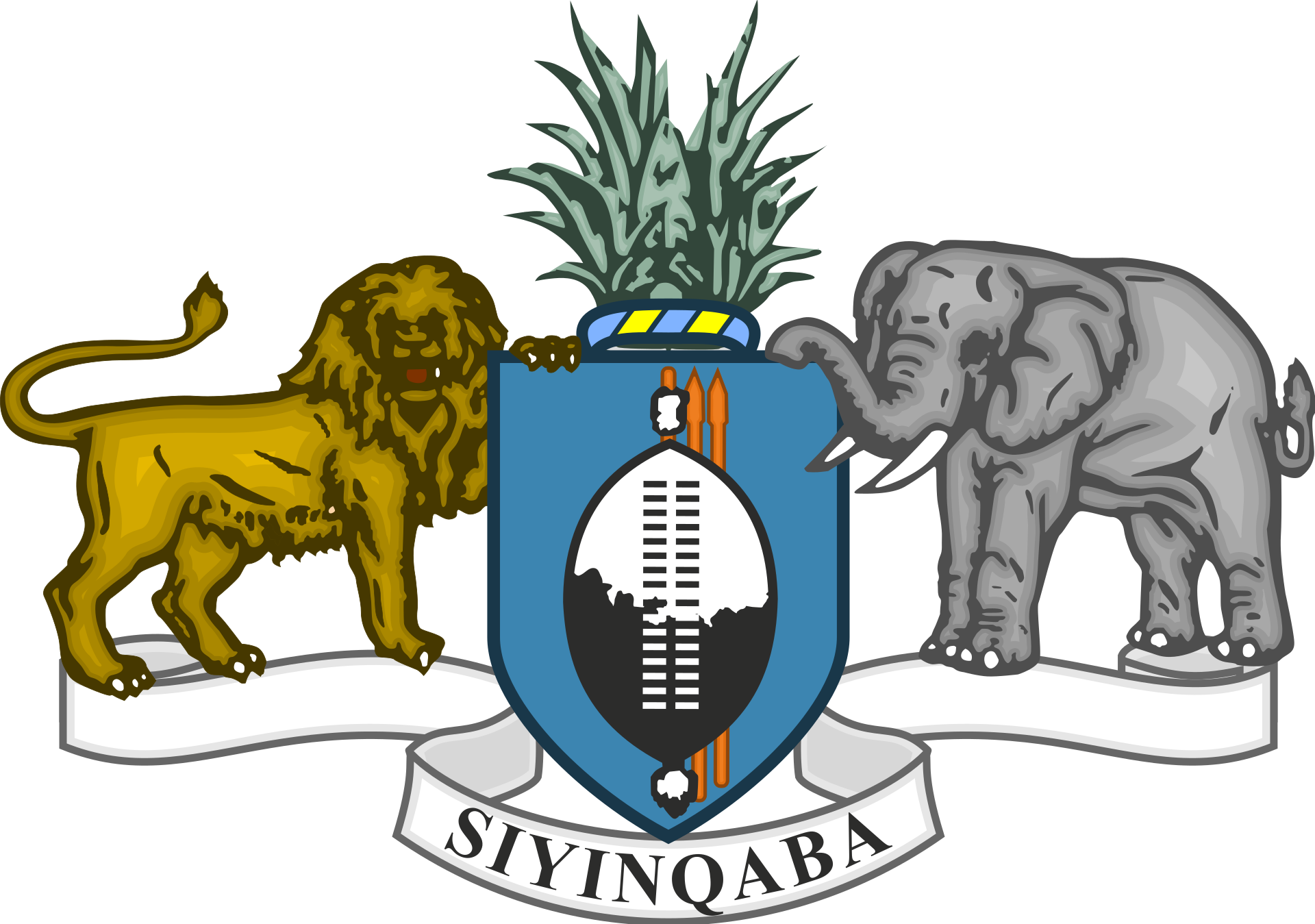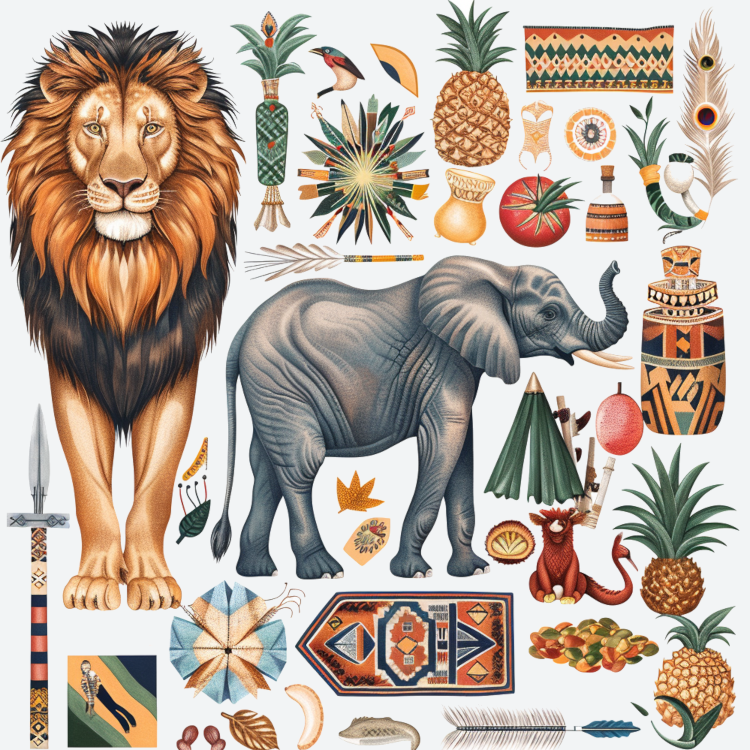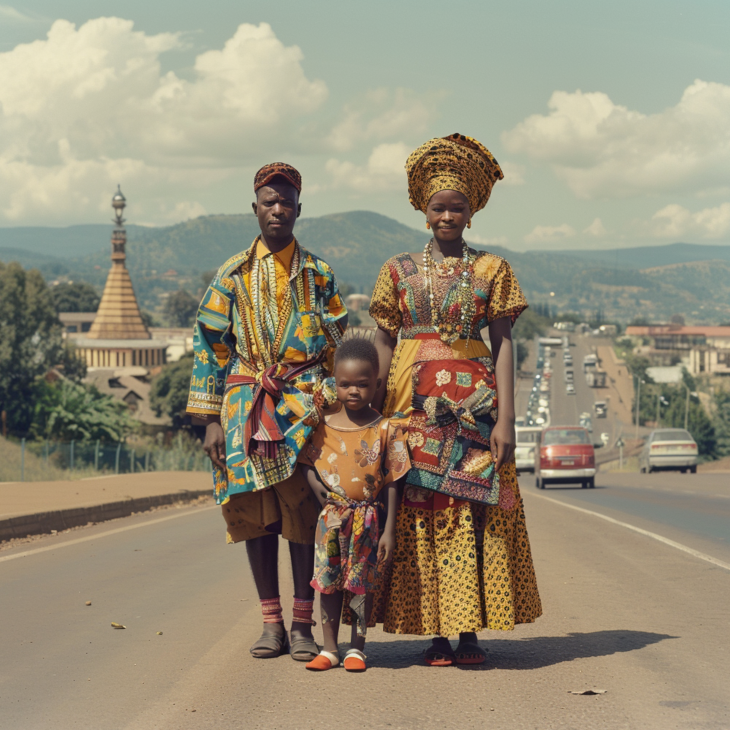About SZ

Location
Eswatini, formerly known as Swaziland, is a landlocked country located in Southern Africa. It is bordered by Mozambique to the northeast and South Africa to the north, west, and south.
Capital
The capital city of Eswatini is Mbabane, while the administrative capital is Lobamba.
Population
As of the latest estimates, Eswatini has a population of approximately 1.2 million people.
Area
Eswatini covers an area of about 17,364 square kilometers (6,704 square miles).
Official Language
The official languages of Eswatini are Swazi (also known as siSwati) and English.
Government
Eswatini is an absolute monarchy, with the King (currently King Mswati III) serving as the head of state and the head of government. The King appoints the Prime Minister and the Cabinet. The Parliament of Eswatini consists of two chambers: the Senate (upper house) and the House of Assembly (lower house).
Independence
Eswatini gained independence from British colonial rule on September 6, 1968. It was previously known as Swaziland until April 2018 when King Mswati III announced the change to Eswatini.
Currency
The currency of Eswatini is the lilangeni (SZL), which is pegged to the South African rand (ZAR) at par.
Economy
Eswatini's economy is primarily based on agriculture, manufacturing, and services. The country is known for its sugar industry, which is a major contributor to export earnings. Eswatini also has significant mining activities, particularly in coal and quarry stone. Tourism is another important sector, with attractions such as wildlife reserves, cultural festivals, and traditional ceremonies.
Natural Features
Eswatini has diverse landscapes, including mountains, savannas, and wildlife reserves. The country is known for its conservation efforts, with several protected areas dedicated to preserving biodiversity and wildlife, such as Hlane Royal National Park and Mlilwane Wildlife Sanctuary.
Culture
Eswatini has a rich cultural heritage influenced by its Swazi traditions and customs. Traditional ceremonies, dances, and music are integral parts of Swazi culture, with events such as the annual Umhlanga (Reed Dance) and Incwala (Kingship Ceremony) being celebrated with great pomp and ceremony.
Religion
Christianity is the predominant religion in Eswatini, with a large proportion of the population adhering to various Christian denominations. Traditional African beliefs and practices also coexist with Christianity, particularly in rural areas.
Infrastructure
Eswatini has developed infrastructure, including transportation networks, healthcare facilities, and educational institutions. However, access to basic services and infrastructure can vary between urban and rural areas.
International Relations
Eswatini maintains diplomatic relations with countries around the world and is a member of various international organizations, including the United Nations, the African Union, and the Southern African Development Community (SADC).
Challenges
Eswatini faces challenges such as poverty, unemployment, HIV/AIDS, and limited access to healthcare and education. Efforts are underway to address these challenges through economic diversification, social programs, and initiatives aimed at improving the well-being of the population.

National Items of Eswatini
Lion
The Lion (Panthera Leo) is a significant symbol in Eswatini, representing strength, courage, and the rich wildlife heritage of the country.
African Elephant
The African Elephant (Loxodonta africana) is another important symbol, representing wisdom, power, and the country's commitment to wildlife conservation.
Sibhaca Dance
The Sibhaca Dance is a traditional Swazi dance performed during cultural ceremonies and festivals. It symbolizes cultural heritage, artistic expression, and social traditions.
Umhlanga (Reed Dance)
The Umhlanga, or Reed Dance, is an annual cultural event where young women present reeds to the Queen Mother. It symbolizes cultural heritage, community unity, and the importance of traditional values.
Beadwork
Traditional Swazi beadwork, known for its intricate designs and vibrant colors, symbolizes the rich artisanal heritage and cultural identity of Eswatini.
Swazi Traditional Dress
Swazi traditional dress, including the "Emahiya" for women and "Lihiya" for men, symbolizes cultural heritage, identity, and traditional fashion.
Sugarcane
Sugarcane is a significant agricultural product in Eswatini. It symbolizes the agricultural heritage and economic importance of the sugar industry.
Nguni Cattle
Nguni cattle are highly valued in Eswatini and symbolize wealth, sustenance, and the traditional livelihood of the Swazi people.
Royal Swazi National Park
Royal Swazi National Park is a significant natural reserve, symbolizing the country's commitment to conservation, biodiversity, and natural beauty.
Incwala Ceremony
The Incwala Ceremony is an important cultural and spiritual event in Eswatini, symbolizing the renewal of kingship, unity, and cultural heritage.
Lutsango LwakaNgwane
Lutsango LwakaNgwane is a traditional women’s regiment that plays a vital role in cultural and community activities. It symbolizes the strength, unity, and cultural heritage of Swazi women.
Pineapples
Pineapples are another important agricultural product in Eswatini, symbolizing the country’s agricultural diversity and economic importance.
Marula Tree
The Marula Tree (Sclerocarya birrea) is significant in Swazi culture, known for its fruit used to make traditional beverages. It symbolizes the natural resources and cultural traditions of Eswatini.
Swazi Shield and Spear
The Swazi shield and spear are traditional weapons and symbols of protection, strength, and cultural heritage.
Mlawula Nature Reserve
Mlawula Nature Reserve is known for its diverse flora and fauna, symbolizing the natural beauty and commitment to conservation in Eswatini.

The anthem expresses gratitude to God for blessings and protection, and it seeks peace and prosperity for the nation of Eswatini. It celebrates the Swazi culture and heritage while acknowledging the importance of faith and unity.
The national anthem of Eswatini is called "Nkulunkulu Mnikati wetibusiso temaSwati" (Oh God, Bestower of the Blessings of the Swazi). Here are the lyrics in the original Swati language along with an English translation:
Nkulunkulu Mnikati wetibusiso temaSwati
Siyinqaba weMikhongelo yethu
Sibonga iNkosi sikelela, tinhliziyo zethu
Sithi bonga iNkosi sikelela
Tonkhe tinhlanhla, Szawula, ngekwenama
Nesibongo simile, tinhliziyo zethu
Sithi bonga iNkosi sikelela
Nkulunkulu Mnikati wetibusiso temaSwati
Siye wena Obose, Nkosi
Sisive loku sithandaza kuwe
Sibonga iNkosi sikelela, tinhliziyo zethu
Sithi bonga iNkosi sikelela
Oh God, Bestower of the Blessings of the Swazi
We give Thee thanks for all our good fortunes
We offer thanks and praise, our hearts are uplifted
We give thanks and praise
You have preserved us from all ills, Szawula, by Your grace
And may it please Thee to continue to do so for us
We give thanks and praise
Oh God, Bestower of the Blessings of the Swazi
Hear our prayer, O Lord
And bless us with peace and prosperity
We offer thanks and praise, our hearts are uplifted
We give thanks and praise


